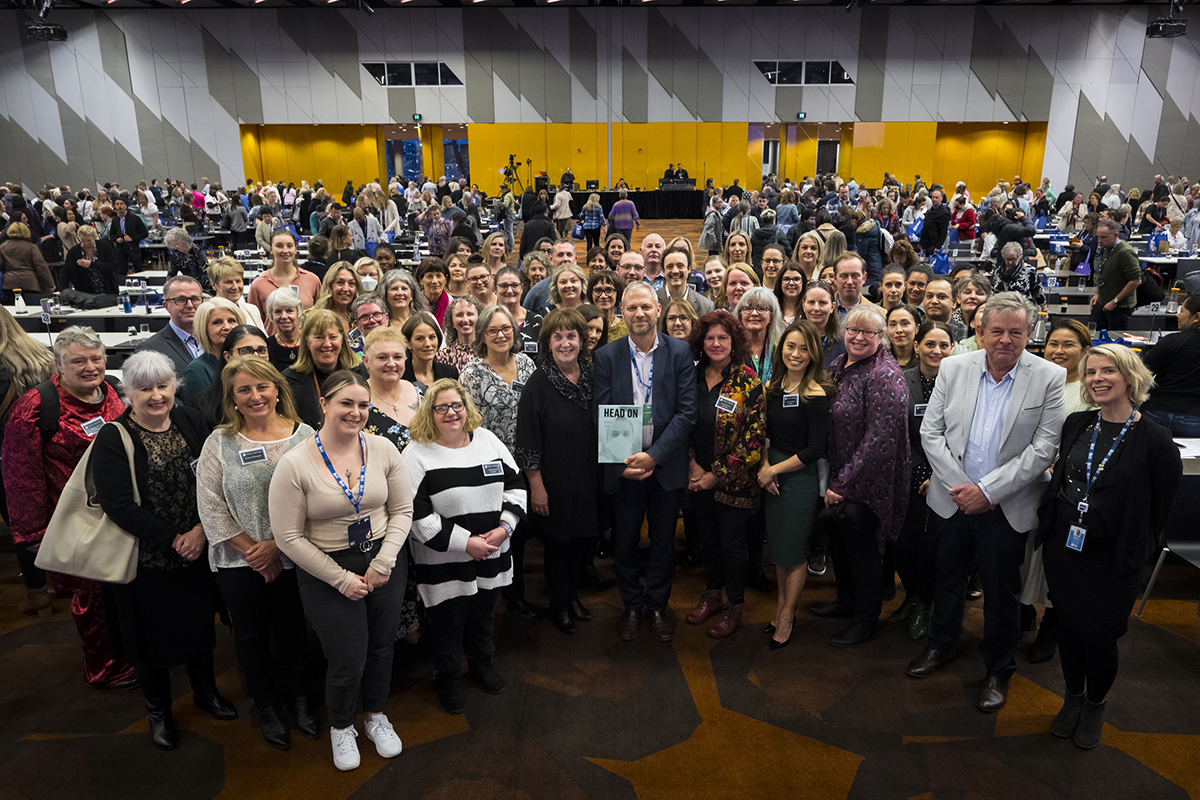
The Healthcare Worker Infection Prevention and Wellbeing Taskforce continues to meet weekly to provide advice on strategies and processes to reduce work-acquired infections and improve healthcare worker wellbeing. ANMF (Vic Branch) Secretary Lisa Fitzpatrick is a member of the taskforce.
Healthcare worker infections have significantly reduced since the August peak. Between 27 August to 2 September there were 154 new healthcare worker cases. This included 83 aged care or disability workers (a breakdown is not provided) 49 nurses and one midwife.
Data transparency
Information about healthcare worker infections will be published weekly on a data dashboard to improve transparency and communication. View the Healthcare Worker COVID-19 data dashboard.
Healthcare workers must feel free to speak up
The taskforce is also promoting the need for organisations to support their healthcare workers to feel free to speak up if they see opportunities to reduce risk, such as changing practices.
Daily attestation
As of 4 September, healthcare workers, including students on clinical placement, are now required to confirm they are symptom free prior to starting a shift. This applies to public health services, private hospitals including private day procedure centres and residential aged care. Providers can establish a verbal or written attestation process. This measure was first reported in COVID-19 27 August newsflash.
Staff amenity audit
Health services have been asked to assess staff amenities against physical distancing standards of one person per four square metres; and at least 1.5 metres space between individuals in staff spaces to reduce person-to-person contact. Amenities include meal areas, tea rooms and break rooms, rest areas and bathrooms.
The self-assessment must be completed by 18 September. If existing spaces do not comply, health services have been asked to identify solutions. The DHHS and Building Standards Authority will provide support to implement alternatives.
Respiratory protection program
The taskforce has endorsed the development of a statewide Respiratory Protection Program (RPP) to minimise the risk of infection from airborne infectious disease. The RPP will include a range of protections including:
- the appointment of a program administrator in each setting
- selection of respiratory protections based on risk
- training in requirements and use including fit checking
- issuing Respiratory Protection Equipment (RPE)
- fit-testing
- record keeping and audit and evaluation of the RPP.
Over the coming weeks, taskforce members together with Worksafe Victoria will design a statewide RPP which will be implemented across Victorian healthcare facilities.
Evidence based policy
A COVID-19 Aerosol Hot Spot Analysis has been commissioned by the Victorian Health and Human Service Building Authority to identify potential ‘hot spots’ in clinical spaces. This study looks at aerosol behaviour and tracks small particles in the air as they are carried in the hospital airstreams determining when and where they hit surfaces and stick to them, creating hot spots. Once completed, guidance will be issued to health services to improve their understanding of hot spots and enhance cleaning and infection control processes.
The information above is from the Healthcare Worker Infection Prevention and Wellbeing Taskforce circular (3 September) [PDF].
Do you have a PPE concern?
ANMF continues to raise and resolve members’ issues at the PPE taskforce union consultation meetings. Members with concerns about PPE should:
- continue to raise and submit OHS incident reports with their employer as well as speaking directly with your manager
- involve your Health and Safety Rep if you have one
- contact ANMF via Member Assistance (include your report and response if applicable) for further support and advice if after you have raised your concerns they are not addressed by your employer.




